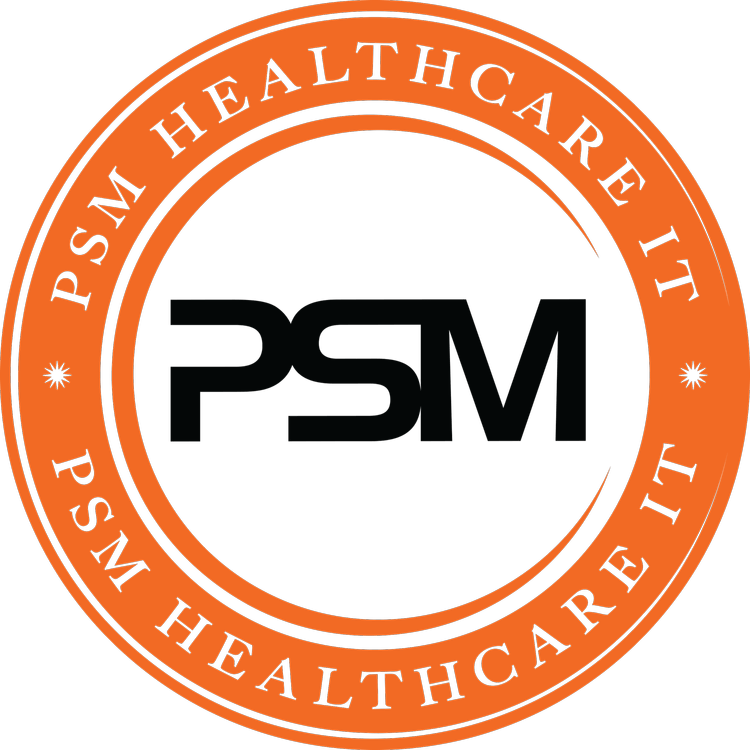-
-
What are the benefits of using AI-Powered Diagnostics in healthcare?
-
How can Blockchain Health Records improve healthcare data management?
-
Why are Telemedicine Platforms becoming popular in the healthcare industry?
-
What advantages do Wearable Health Tech devices offer in monitoring health?
-
How can Data Analytics benefit treatment processes in healthcare?
-
In the world of healthcare technology, Oakland is a hub for cutting-edge solutions. From innovative software to advanced medical devices and wellness tools, the digital landscape of healthcare IT service in Oakland is thriving. In this listicle, we delve into the top picks that are revolutionizing healthcare IT in Oakland, offering a glimpse into the future of the industry’s digital landscape and service.
Discover the latest trends, game-changing technologies, and standout companies that are shaping the landscape of healthcare IT in Oakland. Stay ahead of the curve with our curated selection of the most impactful innovations in this dynamic field. Scroll down to explore reviews of our top picks and unlock the potential of healthcare IT in Oakland.
Key Takeaways
-
Embrace AI-powered diagnostics to improve accuracy and efficiency in healthcare IT systems.
-
Explore the potential of blockchain technology for secure and interoperable health records management.
-
Utilize telemedicine platforms for convenient and accessible healthcare services, especially in remote areas.
-
Incorporate wearable health tech to monitor patients’ health remotely and enable proactive interventions.
-
Leverage data analytics for treatment to enhance personalized patient care and treatment outcomes.
-
Consider cloud-based healthcare solutions for scalability, flexibility, and cost-efficiency in managing medical data and services.
AI-Powered Diagnostics

AI-Powered Diagnostics revolutionize healthcare by leveraging powerful tools like machine learning algorithms to analyze patient data swiftly and accurately. These systems significantly enhance diagnostic accuracy, leading to more precise and timely identification of medical conditions.
By utilizing AI algorithms, healthcare providers can reduce diagnosis time by automating the interpretation of complex medical images and test results. This automation streamlines the diagnostic process, enabling healthcare professionals to make informed decisions promptly.
Moreover, AI-Powered Diagnostics contribute to improving patient outcomes by offering personalized treatment recommendations based on the insights derived from the diagnostic analysis. This tailored approach enhances the effectiveness of treatments, ultimately benefiting patients by providing them with individualized care plans.
In addition to these benefits, AI-Powered Diagnostics also play a crucial role in advancing the field of healthcare IT. The integration of artificial intelligence in diagnostics not only enhances efficiency but also opens up new possibilities for innovative healthcare solutions that can transform patient care and outcomes.
Blockchain Health Records
Blockchain health records revolutionize the healthcare industry by ensuring data integrity through decentralized ledgers. This innovative technology secures patient information, reducing the risk of unauthorized access or tampering.
One of the key advantages of blockchain health records is the seamless data sharing among healthcare providers while safeguarding patient privacy. By enabling secure and efficient data exchange, healthcare professionals can access critical information promptly, leading to improved patient care outcomes.
Moreover, blockchain health records empower patients by granting them control over their health information. Patients can selectively share their records with healthcare providers, ensuring that only authorized individuals have access to sensitive data. This level of control enhances patient engagement and fosters a collaborative approach to healthcare management.
Telemedicine Platforms
Telemedicine platforms leverage mobile technology to facilitate remote consultations between patients and healthcare providers, transforming the digital landscape of healthcare services. By enabling virtual visits through video consultations, these platforms offer a convenient way for patients to access medical care without the need for in-person visits.
One key advantage of telemedicine platforms is the enhanced service they provide by expanding access to healthcare services, particularly for individuals in remote or underserved areas. Patients can connect with healthcare professionals from the comfort of their homes, eliminating the need to travel long distances for routine check-ups or follow-up appointments.
Moreover, telemedicine platforms help in reducing both travel time and costs for patients, making healthcare more accessible and affordable. This not only benefits patients but also contributes to overall healthcare efficiency by streamlining processes and reducing unnecessary burdens on physical healthcare facilities.
These platforms offer email notifications and reminders, ensuring that patients do not miss their virtual appointments. The ability to subscribe to updates and alerts further enhances patient engagement and adherence to treatment plans.
Wearable Health Tech
Wearable health tech encompasses a range of technological advancements that have revolutionized personal health monitoring. These devices, such as smartwatches and fitness trackers, play a crucial role in proactive health management by continuously monitoring vital signs and providing real-time feedback on physical activity and health metrics.
One of the key advantages of wearable health tech is its ability to enable early detection of health issues. By alerting users to abnormal readings or patterns, these devices empower individuals to take prompt action and seek medical assistance when necessary. This proactive approach can potentially lead to significant breakthroughs in preventive healthcare and disease management.
Moreover, wearable health tech has the potential to contribute to global health initiatives. Organizations like the World Health Organization recognize the value of these technologies in promoting wellness and preventing diseases. By leveraging innovations in nanotechnology and gen technology, wearable devices are at the forefront of promising breakthrough technologies in healthcare.
Despite their benefits, it’s essential to acknowledge the potential risks associated with wearable health tech. Users should be aware of privacy concerns, data security issues, and the limitations of these devices. As technological advances continue to evolve, it’s crucial to address these challenges effectively while harnessing the full potential of wearable health tech for improving overall well-being.
Precision Medicine Apps
Precision Medicine Apps are killer apps in the realm of health technology, revolutionizing healthcare by tailoring treatment plans to individual genetic profiles and lifestyle factors. These specialized applications offer a personalized approach to healthcare, enhancing patient engagement and fostering collaboration between patients and healthcare providers in managing chronic conditions.
-
Tailored Treatment Plans: Precision Medicine Apps utilize advanced algorithms to analyze genetic data and lifestyle information, allowing healthcare professionals to create customized treatment plans for each patient.
-
Personalized Health Insights: By providing personalized health insights and recommendations, these apps empower individuals to take control of their health and well-being. Patients can access real-time data about their health status and receive tailored recommendations for improving their overall wellness.
-
Improved Patient Engagement: With features like interactive dashboards, progress tracking, and reminders for medication or appointments, Precision Medicine Apps enhance patient engagement by keeping individuals actively involved in their healthcare journey.
-
Efficient Healthcare Management: These apps streamline communication between patients and healthcare providers, enabling seamless sharing of information and updates on treatment progress. This collaborative approach ensures better management of chronic conditions and facilitates timely interventions when necessary.
Precision Medicine Apps represent a significant advancement in healthcare technology, offering a personalized and proactive approach to wellness management. By leveraging the power of data analytics and personalized insights, these apps are transforming the way healthcare is delivered and experienced.
Virtual Reality Therapy
Virtual Reality Therapy offers immersive experiences that aid in pain management and rehabilitation processes, setting it apart from traditional therapeutic methods. By creating therapeutic environments for mental health treatments like exposure therapy for anxiety disorders, it provides patients with a unique and effective way to address their conditions.
This innovative technology significantly impacts patient engagement by making therapy sessions more interactive and enjoyable. Patients can immerse themselves in virtual scenarios tailored to their specific needs, allowing them to confront their fears or manage their pain in a controlled and supportive environment.
Moreover, Virtual Reality Therapy ensures privacy during sensitive treatment sessions, enhancing the overall experience for patients. With the ability to customize scenarios and monitor progress, healthcare providers can offer personalized treatment plans that cater to individual patient needs effectively.
The use of Virtual Reality Therapy in healthcare showcases the transformative power of technology in improving patient outcomes and quality of care. Its integration into various medical fields demonstrates its versatility and effectiveness in enhancing traditional treatment approaches.
IoT Medical Devices
Medical devices have revolutionized healthcare by integrating Internet of Things (IoT) technology, allowing for real-time monitoring and data collection. These devices enable healthcare providers to remotely monitor patients with chronic conditions, significantly reducing the need for frequent hospital visits.
-
Remote Monitoring: IoT medical devices facilitate remote monitoring of patients, ensuring continuous care and timely interventions when necessary.
-
Data Collection: These devices collect valuable patient data in real-time, providing healthcare professionals with accurate insights into patient health status and trends.
-
Improved Patient Care: By enabling remote monitoring, IoT medical devices enhance patient care by promoting proactive interventions and personalized treatment plans.
-
Workflow Efficiency: Automated data transmission from IoT medical devices streamlines workflows for healthcare providers, saving time and improving overall efficiency in patient care delivery.
The seamless integration of IoT technology into medical devices not only enhances patient care but also empowers healthcare providers with actionable insights and efficient workflows. With the ability to monitor patients remotely and collect real-time data, IoT medical devices play a crucial role in transforming the healthcare landscape towards more proactive and personalized care.
Data Analytics for Treatment
Data analytics plays a crucial role in revolutionizing healthcare by leveraging new treatments and enhancing patient care through advanced insights derived from vast amounts of data. By analyzing large datasets, healthcare providers can uncover valuable trends that contribute to improved clinical decision-making processes. This data-driven approach enables medical professionals to tailor treatment plans more effectively, leading to better patient outcomes and enhanced quality of care.
Moreover, the use of predictive analytics in healthcare allows for the forecasting of wellness recovery action plan, enabling medical teams to anticipate patient needs and optimize treatment strategies accordingly. Through predictive modeling, healthcare providers can identify at-risk patients early on, intervene proactively, and personalize treatment plans for better results.
In addition to individual patient care, data analytics also supports broader research initiatives within the healthcare industry. By aggregating data from various sources, researchers can conduct studies on disease patterns, treatment efficacy, and population health trends. This comprehensive analysis of healthcare data not only enhances medical knowledge but also paves the way for the development of innovative treatments and therapies.
Robotic Surgery Systems
Robotic Surgery Systems revolutionize the field of surgery by enhancing surgical precision and reducing recovery times. These systems utilize minimally invasive techniques, leading to quicker healing and less post-operative pain for patients. By integrating advanced tools and visualization capabilities, they empower surgeons to perform complex procedures with improved accuracy.
The use of robotic systems in surgery significantly decreases the risk of complications by providing greater control and precision during operations. Surgeons can now execute intricate maneuvers with enhanced dexterity, leading to better outcomes for patients. These systems have proven to be instrumental in various medical specialties, from cardiac surgery to urology, showcasing their versatility and effectiveness across different procedures.
With the integration of supercomputers and cutting-edge technology, robotic surgery systems continue to advance, offering improved functionality and efficiency. Surgeons can now access real-time data, 3D imaging, and robotic arms that mimic human movements with unparalleled accuracy. This blend of computing power and medical expertise has paved the way for groundbreaking medical breakthroughs and innovative surgical techniques.
Cloud-Based Healthcare Solutions
Cloud-based healthcare solutions revolutionize the industry by providing secure storage and access to patient data. This technology ensures that authorized users can retrieve information anytime, anywhere, enhancing patient care delivery.
One of the key benefits of cloud-based healthcare solutions is the ability to facilitate seamless collaboration among healthcare teams. By enabling real-time sharing of patient information, these solutions improve communication and coordination, leading to better outcomes for patients.
Moreover, leveraging cloud resources allows healthcare providers to scale their operations efficiently. With the flexibility and scalability offered by cloud technology, organizations can adapt to changing needs and volumes of data without significant infrastructure investments.
Despite the numerous advantages, cloud-based healthcare solutions also come with challenges. Ensuring data security and compliance with regulations remain top concerns for healthcare organizations adopting cloud technology. It is crucial to implement robust security measures to protect sensitive patient information from cyber threats.
In the face of global efforts to address climate change, cloud-based solutions can contribute to sustainability initiatives. By reducing the need for on-premises servers and infrastructure, organizations can lower their carbon footprint and energy consumption, aligning with environmentally conscious practices.
Final Remarks
From AI-powered diagnostics to blockchain health records, wearable health tech, and IoT medical devices, the future of healthcare is undoubtedly exciting and promising. These advancements not only enhance patient care but also streamline processes for healthcare providers, ultimately improving the overall efficiency of the healthcare system.
As you consider integrating these technologies into your practice or daily life, remember to stay informed about the latest developments and best practices. Embracing these cutting-edge solutions can revolutionize how healthcare is delivered and received. Stay curious, stay updated, and be part of the transformation shaping the future of healthcare.
Frequently Asked Questions
What are the benefits of using AI-Powered Diagnostics in healthcare?
AI-Powered Diagnostics enhance accuracy and efficiency in diagnosing medical conditions, leading to quicker treatment decisions and improved patient outcomes.
How can Blockchain Health Records improve healthcare data management?
Blockchain Health Records offer secure, transparent, and immutable storage of patient data, ensuring privacy, interoperability, and integrity of health information.
Why are breakthrough technologies like Telemedicine Platforms becoming popular in the digital landscape of the healthcare industry?
Telemedicine Platforms provide convenient access to healthcare services remotely, enabling patients to consult with healthcare professionals from anywhere, saving time and improving healthcare accessibility.
What advantages do Wearable Health Tech devices offer in monitoring health?
Wearable Health Tech devices enable continuous monitoring of vital signs and health metrics, empowering individuals to track their health status in real-time for proactive health management.
How can Data Analytics benefit treatment processes in healthcare?
Data Analytics helps healthcare providers analyze vast amounts of data to identify trends, patterns, and insights, facilitating personalized treatment plans and improving overall patient care.





